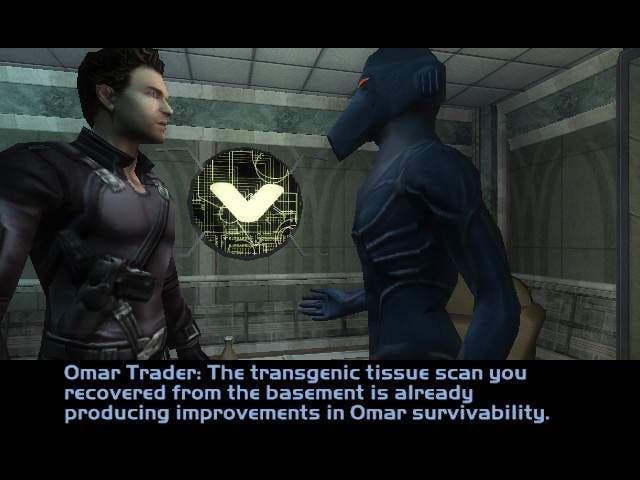Retrospective: Deus Ex: Invisible War
The black sheep of cyberpunk conspiracy thrillers.
After the freedom of Deus Ex it felt as confining as the game's bonsai maps, but this restriction also made each choice more meaningful and important. Do you sacrifice the ability to regenerate your health at will in order to have the spy drone option? Invisible War simply decided you couldn't have your cake and eat it. And that's kind of fitting because Invisible War's morally ambiguous tale is rather bleak.
The opening sets the tone with the destruction of Chicago by a suicide bomber who unleashes a nanotech bomb that turns the windy city and its citizens into grey goo. For a game released at the height of post-9/11 fears about dirty bombs and Islamist terrorism, the topicality can't be missed.
Later down the line - and once you leave Seattle the game really gets into its stride - there are plagues caused by nanotech pollution, exclusive enclaves where the rich enjoy a pampered life while the rest of the population lives in shanty towns, and genetic purists who think nothing of killing children to further their cause.
And then there's the Omar - a sinister group of hive-mind cyborgs that echo the cybermen off Doctor Who. Their creepy, barely human personalities make you almost feel sorry for the arrogant Leo Jankowski when they decide he should join them in their blue frog suit club. Almost but not quite. Hell, even Tracer Tong now regrets his actions in the first Deus Ex.
On top of that you're not even really the hero, but a cipher being played by vying factions who want to impose their vision on the world. As such the endings you can choose are really a choice between the lesser of four evils rather than any world-saving glory moment. Games don't usually do bleak; usually there's a pat on the back for being a winner. Invisible War instead simply makes you question whatever reasoning you use to justify your actions.

Still there's always the secret nightclub finale if that's all too much. Although that involves something about flushing an American flag down the loo, so you'd probably just cause the Tea Party to rise up and who knows what they would be capable of in an age of biomodification.
It's not all bad. There's the amusing tit-for-tat competition between the Pequod's and Queequeg's coffee shops with their nanotech coffees that whiten your teeth as well as wake you up. And who couldn't enjoy the chats with the holographic AI pop star NG Resonance who moonlights as a police informant - guess that's what happens in a future where no one pays for music.
That said Invisible War's overall attempt at creating a truly malleable story didn't really work. It's too easy to shift allegiance at any point, which undermines the meaning of your choices, and you can miss important parts of the story by sticking to one faction too much.
Invisible War is destined to spend its future living in the shadow of the game that came before it and, now, the game that came after it. But there's enough Deus Ex pixie dust within Invisible War for it to deserve a better fate than being remembered for what it is not rather than for what it is.








